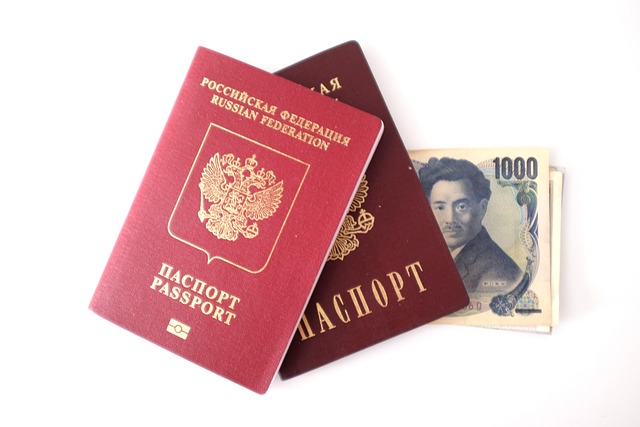Italian Residency Permits: Types and Application Process

Italy, with its rich history, vibrant culture, and stunning landscapes, is a dream destination for many people looking to live, work, study, or retire in Europe. However, before you can settle into la dolce vita (the sweet life), you’ll need to navigate the Italian residency permit system. Italy offers various types of permits depending on your purpose of stay, whether it’s for employment, family reunification, education, or long-term residence. Below, we break down the different types of Italian residency permits, their requirements, and the application process.
Types of Italian Residency Permits
1. Temporary Residence Permits (Permesso di Soggiorno)
Temporary residence permits are issued for stays longer than 90 days but less than five years. These are typically granted for specific purposes such as work, study, or family reunification.
a. Work Permit
- Purpose: For individuals seeking employment in Italy.
- Subcategories:
- Subordinate Employment: For those with a job offer from an Italian employer.
- Self-Employment: For entrepreneurs, freelancers, or professionals starting a business or offering services in Italy.
- Requirements:
- A valid employment contract or proof of self-employment registration.
- Proof of accommodation in Italy.
- Health insurance coverage.
- Clean criminal record.
b. Study Permit
- Purpose: For students enrolled in Italian universities, language schools, or vocational programs.
- Requirements:
- Acceptance letter from an accredited educational institution.
- Proof of financial means to support yourself during your stay.
- Health insurance.
- Passport-sized photos and a valid passport.
c. Family Reunification Permit
- Purpose: For family members of non-EU citizens who are already legally residing in Italy.
- Eligible Family Members:
- Spouse or registered partner.
- Minor children.
- Dependent parents (under certain conditions).
- Requirements:
- Proof of relationship (e.g., marriage certificate, birth certificate).
- Proof that the sponsoring family member has sufficient income and housing to support dependents.
- Valid passport and health insurance.
2. Long-Term Residence Permit (Permesso di Soggiorno CE per Soggiornanti di Lungo Periodo)
This permit allows non-EU citizens to reside in Italy indefinitely after living in the country legally for at least five consecutive years. It grants similar rights to those of EU citizens, including access to healthcare, education, and employment.
- Requirements:
- Proof of continuous legal residence in Italy for five years.
- Sufficient income to support yourself without relying on welfare.
- Adequate knowledge of the Italian language (B1 level or higher).
- Integration into Italian society (e.g., participation in community activities).
3. EU Blue Card
The EU Blue Card is designed for highly skilled non-EU workers. It offers a streamlined pathway to residency and work in Italy.
- Requirements:
- A binding job offer or employment contract with a minimum salary threshold.
- A recognized university degree or equivalent professional qualification.
- Proof of accommodation and health insurance.
4. Elective Residency Visa (Retirement or Financially Independent Individuals)
This visa is ideal for retirees or financially independent individuals who wish to live in Italy without working.
- Requirements:
- Proof of stable and regular income (e.g., pension, investments, rental income).
- Proof of accommodation in Italy (rental agreement or property ownership).
- Health insurance covering all medical expenses in Italy.
- No intention to engage in any form of employment in Italy.
5. Humanitarian Protection and Asylum Seeker Permits
These permits are granted to individuals fleeing war, persecution, or natural disasters. They provide temporary protection and access to basic services like healthcare and education.
- Application Process:
- Submit an asylum application upon arrival in Italy.
- Attend interviews with immigration authorities to explain your situation.
- Await a decision, which may take several months.
Application Process for Italian Residency Permits
Step 1: Apply for a Visa (If Outside the EU)
Before traveling to Italy, most non-EU citizens must apply for a visa at an Italian consulate or embassy in their home country. The type of visa depends on the purpose of your stay (e.g., work, study, family reunification).
- Documents Required:
- Completed visa application form.
- Valid passport with at least two blank pages.
- Passport-sized photos.
- Proof of travel arrangements (flight itinerary).
- Proof of accommodation in Italy.
- Proof of financial means.
- Health insurance.
Step 2: Enter Italy and Request a Residency Permit
Once you arrive in Italy, you have eight days to apply for a residency permit (Permesso di Soggiorno). This process begins at your local post office (Poste Italiane).
- Steps:
- Purchase a “kit” for the residency permit application at any post office.
- Fill out the forms included in the kit and attach required documents (e.g., passport, visa, proof of income, health insurance).
- Submit the completed kit at the post office and schedule an appointment at the local police station (Questura).
- Attend the appointment at the Questura to provide biometric data (fingerprints and photo).
Step 3: Wait for Approval
Processing times vary depending on the type of permit and the region. You’ll receive a receipt (ricevuta) as proof of your application while you wait for the final permit.
Renewal of Residency Permits
Most temporary residency permits are valid for one to two years and can be renewed before expiration. To renew:
- Submit updated documents proving continued eligibility (e.g., employment contract, enrollment in school, or proof of income).
- Pay the renewal fee.
- Attend any required appointments.
Tips for a Smooth Application Process
- Start Early: Begin gathering documents well in advance to avoid delays.
- Double-Check Requirements: Each consulate and region may have slightly different procedures, so confirm details with your local Italian consulate.
- Learn Italian: While not mandatory for all permits, knowing basic Italian will help you integrate and communicate effectively.
- Stay Compliant: Always adhere to the terms of your permit (e.g., don’t work if your permit prohibits it).



